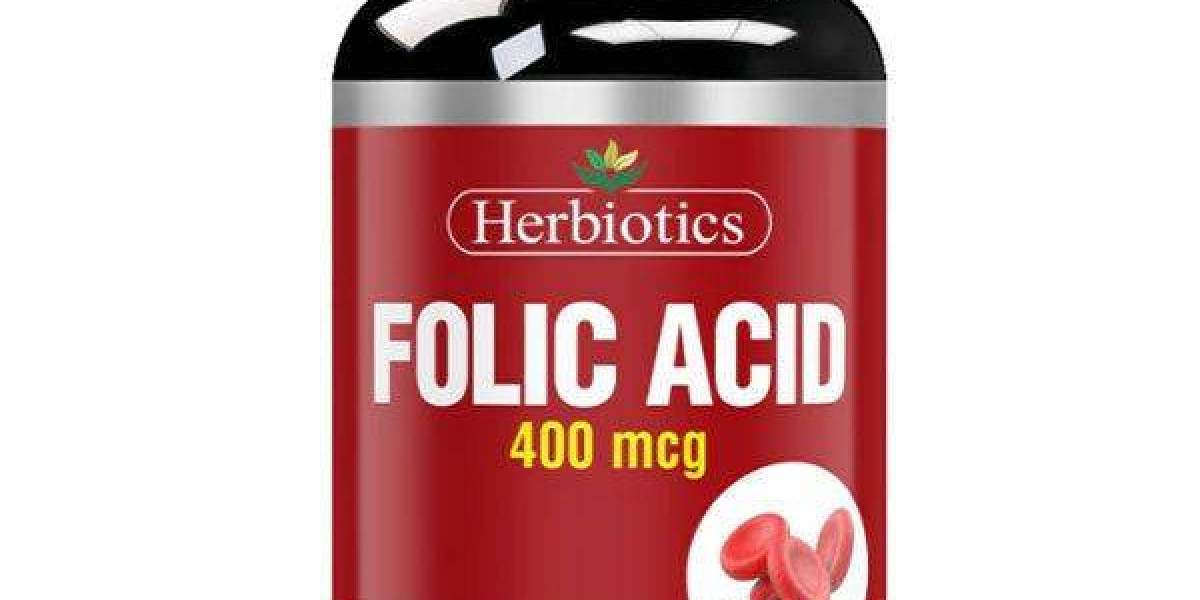Hair growth is a common concern for many individuals, especially those experiencing hair thinning, breakage, or slow regrowth. Among the many vitamins and supplements available, Folic Acid Tablets have gained attention for their potential role in promoting healthy hair. But do they really work?
In this blog, we explore what folic acid is, how it may benefit hair growth, and what scientific research says about its effectiveness.
What is Folic Acid?
Folic acid is the synthetic form of folate, a B-vitamin (Vitamin B9) that plays a crucial role in DNA synthesis, red blood cell production, and cell division. It is found in foods like leafy greens, citrus fruits, legumes, and fortified cereals, but many people also take folic acid tablets as a supplement.
Folic acid is especially important for pregnant women, but its benefits extend to many other aspects of health—including potentially improving the condition of your hair.
How Folic Acid Supports Hair Growth
Folic acid is believed to support hair growth in several ways:
Promotes Cell Division: Hair follicles are among the fastest-growing cells in the body. Folic acid supports healthy cell division, which is essential for new hair growth.
Improves Blood Circulation: Folic acid helps in the production of red blood cells, which improves oxygen and nutrient delivery to the scalp—nourishing the hair follicles.
Aids in Keratin Formation: Folate helps with the creation of keratin, the protein that makes up hair strands. This can lead to stronger, healthier hair.
Reduces Premature Graying: Some studies suggest that folic acid deficiency may contribute to early graying of hair, and supplementation may help maintain natural color longer.
What Does the Research Say?
The relationship between folic acid tablets and hair growth is still being studied. While direct evidence linking folic acid supplementation to increased hair growth is limited, there are a few key findings:
Folate Deficiency and Hair Loss: A 2017 review published in Dermatology and Therapy reported that folate deficiency may be associated with hair loss conditions like telogen effluvium and alopecia areata.
B-Vitamins and Hair Health: According to research in the Journal of Clinical and Aesthetic Dermatology, deficiencies in B-vitamins, including folate, may contribute to poor hair quality. Supplementing with folic acid could help correct these deficiencies.
Individual Case Studies: Some case reports and anecdotal evidence show improvements in hair thickness and reduced hair shedding in individuals who began taking folic acid supplements.
Although more clinical trials are needed to confirm the effectiveness of folic acid tablets specifically for hair growth, correcting a deficiency in folic acid is likely to benefit overall hair health.
Should You Take Folic Acid Tablets for Hair?
If you suspect a folic acid deficiency, supplementation may be beneficial—not just for your hair but also for your overall health. Signs of low folic acid include:
Fatigue
Pale skin
Mouth sores
Poor concentration
Hair thinning or slow growth
Before starting any supplement, it's a good idea to consult your doctor and possibly get a blood test to check your folate levels.
Recommended Dosage
The recommended daily intake of folic acid for most adults is 400 micrograms (mcg). For women who are pregnant or planning to become pregnant, the dosage increases to 600–800 mcg daily. Always follow the dosage instructions on the supplement label or your doctor’s advice.
Natural Sources of Folate
While folic acid tablets are convenient, you can also boost your intake naturally through foods such as:
Spinach, kale, and other leafy greens
Oranges and citrus fruits
Lentils and chickpeas
Eggs
Fortified cereals and bread
Combining a balanced diet with supplements ensures your body gets all the nutrients it needs for healthy hair.
Final Thoughts
Folic acid tablets may not be a magic solution for hair growth, but they can support hair health, especially if you’re deficient. By promoting cell regeneration, improving blood flow to the scalp, and aiding in keratin production, folic acid plays a valuable role in maintaining strong, vibrant hair.
If you’re dealing with hair thinning or slow growth, speak with your doctor about whether folic acid supplements are right for you. A small tablet could make a big difference in your hair care journey.








